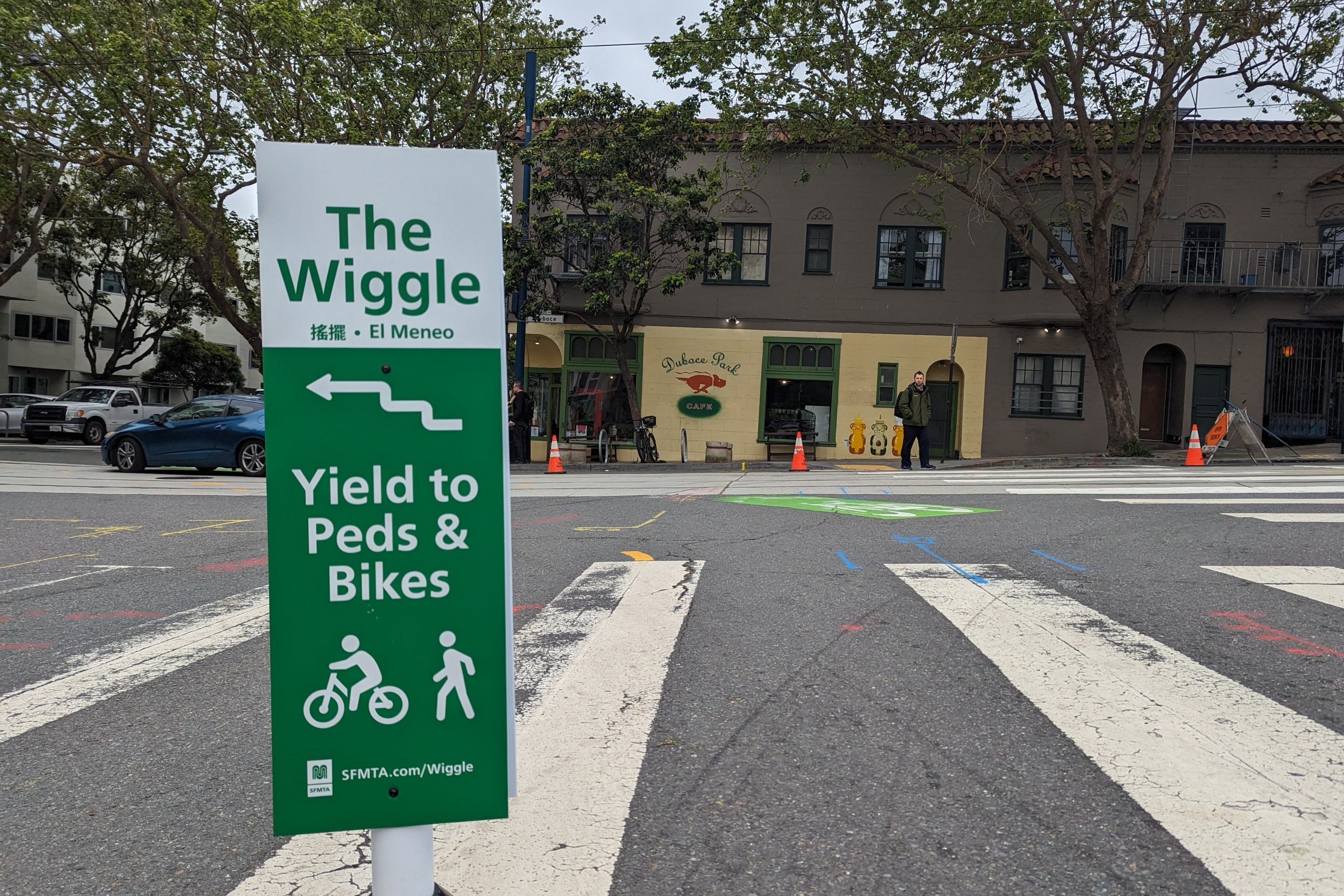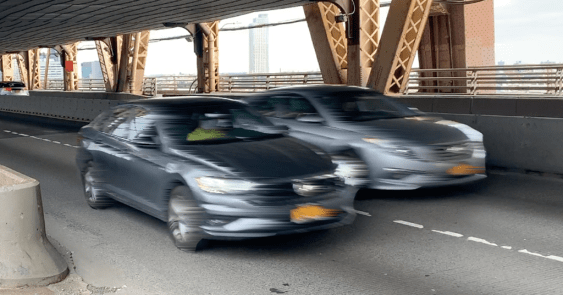MTA Could Boost Revenue by Enforcing Downtown Commuter Parking Law
1:41 PM PDT on March 31, 2010
 Unlike numerous downtown garages, this one adheres to planning code and charges a non-discounted monthly parking rate. Photo: Michael Rhodes.
Unlike numerous downtown garages, this one adheres to planning code and charges a non-discounted monthly parking rate. Photo: Michael Rhodes.You'd hardly know that it's illegal to charge discounted daily and monthly parking rates at numerous downtown San Francisco garages because enforcement of the law is almost non-existent.
Planning Code Section
155(g) prohibits discount rates for all-day or monthly parking in
off-street parking spaces downtown (the C-3 District in planning code
parlance). It’s intended to discourage commuting by car to San
Francisco's crowded downtown, while encouraging transit and leaving
spots open for shorter car trips, like shopping and appointments.
Because the Planning Department doesn't have an effective enforcement wing, nor a financial incentive to enforce parking rules, the San Francisco Municipal Transportation Agency (MTA) is considering how it could take over enforcement of the commuter parking law, a move the MTA believes could net an additional $6 million annually.
"Enforcement has not been done in any systematic way that I’m aware of,"
said the Planning Department's Josh Switzky. "It's normally done on a
complaint basis. It's a matter of practicality and workload."
Switzky
said the Planning Department is enthusiastic about the idea of handing
the responsibility over to the MTA, which already enforces many other
parking rules in the city and has a major financial incentive
to enforce the code aggressively.
At present, the average monthly fee for parking downtown is $285, according to a recently completed parking census. That’s an average hourly rate of $1.78 based on a 40-hour workweek. If the ordinance were strictly enforced, based on current market rates all parkers would pay an hourly rate of around $2.30, regardless of their length of stay.
By enforcing existing law the MTA would gain additional revenue to help close
budget gaps of $45 million and $55 million in the next two fiscal
years, without resorting to cutting even more Muni service. By
discouraging discount rates, garage operators would charge more for
long-term parking and the MTA will get more in parking tax revenue and
income from its own garages.
While the MTA expects some monthly parkers would simply stop using the garages, leading to a small decrease in parking demand, the higher average hourly rates would more than make up for the change. At its own garages, it estimates the new price structure could bring in an extra $2.5 million.
The downtown commuter parking law originally went into effect in 1985 with sweeping changes to the planning code as part of the Downtown Plan. Like many provisions in the Downtown Plan, said Livable City’s Tom Radulovich, it was intended to limit parking overall downtown, discourage commuting by car because it creates traffic snarls at peak times, and prioritize existing parking for merchants and short trips.
But while some newer garages are following the code to the letter, it hasn’t been applied retroactively to garages built before 1985. Some of "MTA's own lots and garage are run that way," Radulovich pointed out. "They're not running any of their parking as called for by city policy."
In fact, most city garages in the C-3 district do offer daily, monthly, and early bird special rates -- all of which are prohibited by the Planning Code if they don't meet the criteria set out in Section 155(g). So do the majority of pre-1985 private garages downtown. By contrast, a brief survey of just a few recent buildings found strict adherence to the rule, with rates that closely matched the code's requirement: The rate for four hours of parking must be no more than four times the hourly rate, and the rate for eight or more hours of parking must be no less than 10 times the hourly rate.
For instance, the garage at 560 Mission Street, built in the last decade, had an hourly rate of $2.13, a four-hour rate of $8.50, and a daily rate of $23.38 -- all closely following the code. Its monthly rate of $450 seems to derive from the hourly rate multiplied by ten (the minimum daily rate) times a monthly average of about 21 workdays (the garage is closed on weekends and holidays.)
While there may be plenty of post-1985 garages that aren’t in compliance, the pre-1985 garages likely add up to a far greater target for enforcement. But to act on that, the MTA will need to establish its legal right to do so. "The Planning Code generally doesn't apply retroactively," said Planning's Switzky.
"There's various ways to do that," countered Radulovich. "You'd need a land use attorney’s opinion. Some controls can be applied retroactively."
It’s possible the MTA could simply enforce the code as it’s written on all C-3 garages, but if it does require legislative action, the agency is already looking in that direction: MTA staff has even proposed expanding the code provision to the whole city, potentially bringing in an additional $5.2 million.
From a congestion management standpoint, that would be especially crucial as many garage operators provide shuttles from parking facilities just outside downtown to the center of the Financial District.
"Of course, in some places, the C-3 zone is just the blocks on either side of Market Street," said Radulovich. "If you’re very diligently enforcing those regulations, but a block away from Market Street isn’t enforced at all, that’s not going to be very effective."
Another proposal presented by MTA staff on March 2 would charge a higher parking tax rate to garages that don’t comply with the ordinance. That would certainly require legislative action, but would ensure extra revenue for the MTA, while giving garage operators some flexibility.
As with any process that requires inter-agency cooperation, having the MTA take over enforcement of Section 155(g) of the Planning Code won't happen without effort, but both agencies are eager to get started.
"It’s worthy of attention, and it’s probably about time," said Switzky.
Stay in touch
Sign up for our free newsletter
More from Streetsblog San Francisco
Commentary: There is Zero Ambiguity to the West Portal Tragedy
What happened in West Portal was entirely predictable and preventable. The city must now close Ulloa to through traffic and make sure it can never happen again
Independent Safety Advocates Beef up the Wiggle
Signs and soft-hit posts installed by advocates make the Wiggle bike route calmer and safer for cyclists and pedestrians




